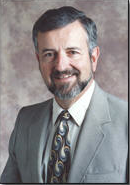HETL Note: Dr. Michael Theall, Ph.D., offers an insightful response to Dr. John M. Carfora’s article entitled “Navigating Between Teaching, Learning and Inquiry“, posted on March 30, 2011. Specifically, Dr. Theall addresses the question about the connection between teaching and research that was raised in Dr. Carfora’s article. If you would like to continue the discussion, please submit your own article on the topic (see the Submissions page on this portal for submission requirements). You may submit your own article on the topic or you may submit a “letter to the editor” of less than 500 words (see the Submissions page on this portal for submission requirements).
 Author’s Bio: Professor Michael Theall, Ph.D., is Professor of Education at Youngstown State University. He has been a high school teacher and held faculty positions while serving as the director of teaching and learning centers at four universities. He has published more than 270 books, monographs, papers, presentations, workshops, and webinars on college teaching, faculty evaluation and development, teaching improvement, the professoriate, organizational development, and educational technology. He has consulted to more than 75 institutions in the USA, Canada, Singapore, and China. He is the recipient of many awards including the 2003 “Saint Anselm College Alumni Distinguished Academic Achievement Award”, the 2005 “Relating Research to Practice: Integrative Scholarship Award” from the American Educational Research Association (AERA), and the 2008 “R. J. Menges Award for Outstanding Research in Educational Development” from the Professional and Organizational Development Network in Higher Education (POD Network). He is Past President of the POD Network.
Author’s Bio: Professor Michael Theall, Ph.D., is Professor of Education at Youngstown State University. He has been a high school teacher and held faculty positions while serving as the director of teaching and learning centers at four universities. He has published more than 270 books, monographs, papers, presentations, workshops, and webinars on college teaching, faculty evaluation and development, teaching improvement, the professoriate, organizational development, and educational technology. He has consulted to more than 75 institutions in the USA, Canada, Singapore, and China. He is the recipient of many awards including the 2003 “Saint Anselm College Alumni Distinguished Academic Achievement Award”, the 2005 “Relating Research to Practice: Integrative Scholarship Award” from the American Educational Research Association (AERA), and the 2008 “R. J. Menges Award for Outstanding Research in Educational Development” from the Professional and Organizational Development Network in Higher Education (POD Network). He is Past President of the POD Network.
Patrick Blessinger & Krassie Petrova
~~~~~~~~~~~~~~~~~~~~~~~~~~
To the Editor:
On March 30, 2011 the Higher Education Teaching and Learning Portal published an article by John Carfora, entitled “Navigating Between Teaching, Learning and Inquiry.” I read the article and agreed with the essence of it. I think that making connections among teaching, learning and inquiry is helpful to all three activities. I also agree with Carfora’s appropriate notes about avoiding competition between research and teaching. However, there was one statement that brought to mind a problem I have observed in the evaluation of teaching. Carfora said,
“The learned teacher-scholar is proficient in both teaching and research, and recognizes that scholarly research informs good teaching the same way that good teaching clearly integrates meaningful research and the craft of research.”
I like the definition of a “…learned teacher-scholar…proficient in both…” especially for college teachers, and I agree that in many cases “…good teaching clearly integrates meaningful research and the craft of research.” But in this letter, I refer specifically to the words “…scholarly research informs good teaching…”. While I agree that engagement in scholarly and creative activities can inform good teaching, I do not think the connection is automatic. It requires both a conscious effort on the part of the teacher and the knowledge and skills required to blend the two in an instructionally successful plan. This is similar to what Shulman referred to as “”pedagogical content knowledge” and in its highest form, “curricular knowledge.” A deep understanding of the course content and of teaching and learning that allows seamless integration of the two.
Many faculty try to blend research and teaching and do so successfully. Some are fortunate in that the research & scholarship they do concerns issues directly related to the courses they teach and the pedagogy they use. For example, in my case, research on college teaching and learning, evaluation & student ratings, faculty development, and related topics relate to my courses in teacher education, my college survival courses for first-year students, and a course on college teaching and learning I previously taught and am now revising. However, other kinds of disciplinary research often focus on issues not directly related to teaching and learning and in these cases, faculty must determine how to connect their scholarship with their teaching so that students benefit. The exceptions are those research projects that examine teaching and learning within the framework of the discipline, that is, studies in the “Scholarship of Teaching and Learning” realm.
College teaching and student ratings research over several decades has been absolutely consistent in finding zero order correlations between overall ratings of teachers and research productivity. But productivity (i.e., the numbers publications, grants received, etc.) is only a measure of the amount of research done. There is no reason to assume that the more research a person does, the better that person will teach. The ratings research is accurate in its limited way, but it does not measure the extent to which a person integrates research into teaching. I believe, as does Carfora, that when there is integration, there is greater potential for the teacher to bring enthusiasm, content currency, professional practice, and other valuable matters into the classroom, and for students to get interested, engaged, and intellectually stimulated as a result.
My concern is based on how often I have heard faculty and administrators say that good (meaning productive) researchers are, by virtue of that productivity, also good teachers, or that “One cannot be a good teacher without being a good researcher.” Accepting this unproven statement results in evaluation policy and practices that are unbalanced and potentially unfair because if the argument follows, then one can make decisions about teaching quality by considering research capability & productivity as valid evidence of teaching performance. This thinking also diminishes teaching in areas where scholarly productivity is not a requirement. If we believe the automatic “You can’t be a good teacher without being a good researcher”, then we dismiss almost all K-12 teachers, teachers in technical/applied areas and any others who do not regularly carry out research but who nonetheless help students/trainees/apprentices/etc. to learn. Have you ever heard anyone make the statement in reverse, that is, to state, “You can’t be good researcher without being a good teacher”? Why not? One answer is that the two things require different knowledge and skills (and perhaps dispositions and characteristics as well). That being true, then the distinction applies to both statements. Two different sets of skills are at work and neither one guarantees the other.
All this said, I repeat that I am not disagreeing with Carfora’s essential points and I realize that his words quoted above do not state the issue in exactly the way I have been discussing it here. Still, I and many colleagues in evaluation over the years have frequently heard the “good research equals good teaching” belief offered without any supporting evidence. And those who hold that implicit theory may be making decisions about others’ teaching on the basis of their valuing of a person’s research activities and productivity. This is poor evaluation practice and of little value in determining how to help colleagues improve their teaching and their students’ learning. As well, it creates the kind of research vs teaching competitiveness that Carfora rightly decries.
Michael Theall
Copyright © [2011] Michael Theall
Disclaimer
Opinions expressed in this article are those of the author, and as such do not necessarily represent the position(s) of other professionals or any institutions.
